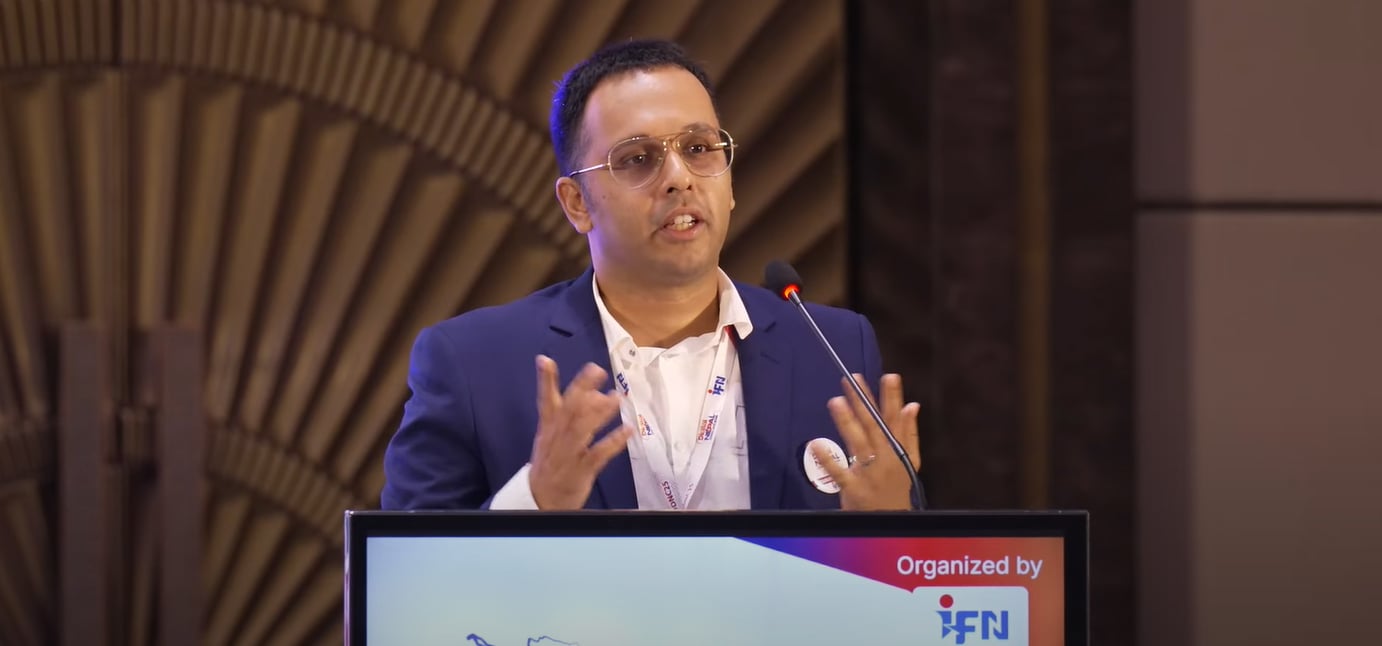
These days, it is almost impossible to go through newspapers without glancing at topics related to bribery, financial misconduct and malfeasance. From print media to online portals, from tea-shop chats to formal gatherings, the conversation is flooded with reports of corruption, fraud, and embezzlement.
The most cited reason behind the corruption is the low pay received by the Nepalese civil servants. At first glance, this explanation appears reasonable as government employees often find it difficult to support their family amid increasing living costs. However, the argument becomes weaker when we consider the frequent involvement of wealthy individuals—those already commanding a well-to -do lifestyle and with virtually no need of further material acquisition—in major corruption scandals. If financial inadequacy were the sole factor, why would the affluent stake their reputations and comfort?
This contradiction seeks a deeper, more compelling explanation that comes from psychology and social dynamics. Corruption, thus, is not simply a response to poverty or need but a gradual erosion of ethical values and triggered by psycho-social factors. No one is born corrupt. People become so gradually over time, influenced by their environment, experiences, and internal desires.
Many classical thinkers have identified ‘greed’ as the psychological factor that drives corruption. The insatiable desire for material wealth and social status often spirals into extravagance and moral decay. What begins as the pursuit of a modest life—a few pairs of shoes, a car, a house, a secure family—soon transforms into a relentless quest for more. This sense of inadequacy intensifies when one compares themselves to peers, leading to burning jealousy and dissatisfaction.
William Shakespeare, in Macbeth, shows light on the corrupting behavior of greed as,
“This avarice
Sticks deeper, grows with more pernicious root
Than summer-seeming lust; and it hath been
The sword of our slain kings.”
It means, “greed is not just strong—it grows inside people and ruins them. It’s more harmful than momentary desires like lust, and has destroyed the most powerful rulers in history.”
The lure of risk and reward
Scientific research supports this observation. Studies show that accumulating wealth and possessions activates dopamine release in the brain—the same chemical associated with pleasure and addiction. The more people acquire, the stronger their craving for more becomes, often pushing them toward corrupt or even illegal behavior.
A revealing study conducted at a University of Wurzburg, Germany demonstrated how greed influences decision-making. Participants were instructed to inflate a virtual balloon on a computer. Each successful inflation, without bursting it, earned them a reward. However, the temptation to push the balloon further for greater gains led many to take excessive risks. The greedier the individual, the greater the likelihood they would go too far and lose everything.
Another classical experiment conducted in McGill University in Montreal, Canada (1954) with mice showed similar results. Electrodes were implanted in a part of the brain that released dopamine—the chemical associated with pleasure. Each time a mouse pressed a lever, it experienced a dopamine surge in certain parts of the brain. Eventually, the mouse became so consumed by the reward mechanism that it kept pressing the lever compulsively—until it died.
Greed, ego, illusion, and the denial of mortality
Greed and ego are closely linked psychological characteristics that frequently amplify each other. Greed represents a powerful urge to obtain more—whether that’s wealth, power, or prestige—while ego reflects the self-perception or sense of superiority an individual maintains. A greedy person with inflated ego, can exonerate and even elevate unethical actions as markers of achievement or self-worth.
For instance, a businessman might pursue aggressive projects not due to need, but to satisfy their ego-driven wish and to display oneself as the most successful person in the market. Likewise, an individual may accumulate luxury items not for their practical utility, but to enhance their self-image and impress others—greed catering to the ego’s wish for recognition. As a result, greed often hides as ambition, while ego justifies excess as a form of entitlement. Together, they create a cycle of ongoing dissatisfaction, with corruption becoming the most probable outcome.
Philosophers have also interpreted greed as an extension of humanity’s desire for longevity—or even immortality. Why, for instance, does someone with ten shirts buy three more? The answer lies not in utility but in a subconscious belief that one will live long enough to enjoy them. This illusion extends to the booming industry of anti-aging products and cosmetic procedures that promise to halt time itself.
But these are illusions. Ageing is inevitable. Death is certain. The denial of these truths breeds anxiety, dissatisfaction, and in many cases, self-destructive behavior.
The god complex
Some scholars go further, arguing that greed and the lust for power stem from a deeper, quasi-divine delusion. Men who accumulate wealth and authority often begin to see themselves as invincible, immune to the rules that govern ordinary lives.
Hitopadesh, an ancient Hindu scripture reads “With coins in hand and crowns upon their heads, they behold the trembling world and deem it worship. Deluded by pride, they fancy themselves gods among mortals—forgetting their bodies are but dust, bound to decay just like any other creations. Deluded by ego, thinking ‘None is greater than I,’ one wanders blindly through the world like a blind man heading for ruin.”
The slippery slope of transgression: Moral justification to psychopathy
Corruption starts from small things. For instance, a person might tell a small lie to secure a minor advantage, convincing themselves it harms no one. This initial justification lowers the psychological barrier for future wrongdoings, creating a slippery slope.
Aristotle, in his Nicomachean Ethics, emphasizes the role of habituation in shaping personality. He argues that virtues and vices are not innate but developed through repeated actions. A single lie may seem harmless, but habitual lying erodes integrity, fostering a natural tendency towards cheating. Over time, individuals make themselves immune to guilt, a hallmark of psychopathic tendencies characterized by a lack of empathy or remorse.
This slippery slope can ultimately lead to a form of secondary psychopathy—an acquired condition marked by a loss of empathy, emotional numbness, and manipulative behavior.
According to psychologist Robert D. Hare, psychopathic traits such as lack of remorse and emotional detachment can emerge in individuals repeatedly exposed to corrupt systems. What begins as minor ethical lapses becomes normalized through rationalization and self-deception.
We can see a lot of politicians, bureaucrats and businessmen in the contemporary times, lying outrightly and denying their involvement, showing no remorse whatsoever in any wrong doings even when the solid evidences are presented.
Similarly, studies on moral disengagement, a concept introduced by Albert Bandura, show how individuals rationalize unethical behavior through mechanisms like moral justification (“I’m doing this for the betterment of my family”) or displacement of responsibility (“I am part of the system and merely following the orders”).
The banality of evil, a term coined by Hannah Arendt, further illuminates this process. In her analysis of Adolf Eichmann (A high-ranking Nazi official who was directly responsible for murder of millions of Jews), Arendt observed that ordinary individuals could commit heinous acts by detaching their actions and avoiding guilty remorse. Similarly, corruption often grows from mundane decisions—over-billing the expenses, taking commissions, biased decisions on trivial contracts or purchases—where individuals fail to confront the moral implications of their choices.
Cultural influences normalizing the corruption
While psychological mechanisms explain individual behavior, cultural factors shape the environment in which corruption thrives. Societies with weak institutional accountability or internalized hierarchies often normalize unethical behavior.
Cultural relativism, where moral standards vary across contexts, can also worsen the practice of corruption. In Nepal, practices like nepotism, gift-giving, favor seeking (Bhansun) are seen as customary rather than corrupt, blurring ethical lines.
Traditional societies like ours often give space to patron-client relationships where loyalty to family, caste, or ethnic group overrides merit. Jobs, contracts, or favors are distributed based on connections rather than fair-play, fostering nepotism and favoritism.
Max Weber, in his writings has further shown how cultural values influence behavior. In societies where material success gets more priority over ethical conduct, corruption may be silently encouraged. It is a sad reality that our Nepalese society is no longer alien to these practices. We Nepalese voluntarily and involuntarily, are largely part of extravagant wedding receptions, lavish parties, culture of emulation and often showcasing our lifestyle on social media as a way to project superiority and success.
Edward T. Hall’s concept of high-context versus low-context cultures also sheds light. In high-context cultures, where relationships and implicit understandings dominate, favors or bribes may be seen as social necessity rather than corruption. Over time, individuals internalize these norms and corruption is not seen as morally wrong but as a necessary means to get things done.
People may witness corruption but choose not to speak out due to apathy, fear, or the belief that “everyone does it.” This collective silence and complicity reinforce a culture where corruption is sustained by mass silence.
Conclusively, corruption is not merely an outcome of need, but a slow unraveling of conscience—fueled by greed, ego, and cultural complicity. It thrives in systems where ethical decay becomes habitual, normalized, and even glorified as success. To combat it, we must confront not just the corrupt, but the collective illusions that fuel and celebrate them.























